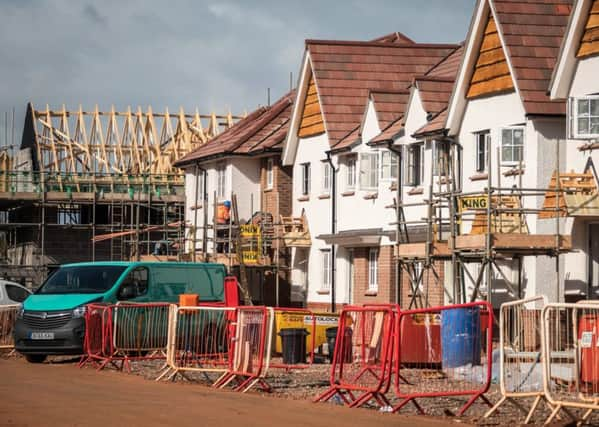Brexit could lead to housebuilders running out of timber, MP warns


Martin Whitfield MP, chair of Westminster’s all party parliamentary group for the timber industries, has called for access to the single market and customs union to address the spiralling housing crisis.
Latest figures show that 83 per cent of homes being built in Scotland are timber-framed, compared with just 23 per cent in England, 31 per cent in Wales and 17 per cent in Northern Ireland.
Advertisement
Hide AdAdvertisement
Hide AdMore than 60 per cent of all timber products used in the UK are imported from the EU, and when it comes to timber used in construction, this figure rises to about 90 per cent.
Martin Whitfield, Labour MP for East Lothian, said: “It is incredible that given 90 per cent of the timber used to build homes in this country is imported from the EU, the government continues to back a flawed Brexit deal that fails to offer frictionless trade with Europe.
“I am deeply concerned that after March 2019 there will be large quantities of timber sitting, unable to be used or sold, in customs for weeks on end.
“The effect of this will cost small and medium-sized businesses both time and money.
“If the Prime Minister is serious about her ‘personal mission’ to solve the housing crisis, she must start by scrapping Chequers and broker an improved deal that ensures timber can clear customs freely.”
This summer the Timber Trade Federation (TTF) said it would not be taking a pro or anti Brexit stance. But its managing director David Hopkins pointed out that the weakening pound since the EU referendum vote had seen timber import prices rise.
This had meant many businesses were struggling to deal with the rises and avoid passing them on to customers. He also warned that the customs options on the table threatened to make the situation worse.
The current system for VAT payments is under threat. Under existing rules, importers can spread the payment of VAT on EU imports, giving time for goods to be sold before having to pay the tax.
Advertisement
Hide AdAdvertisement
Hide AdThis has the effect of easing cash flow, especially for small business.
The TTF warned that once the UK leaves the EU and its VAT area, this may no longer be possible.
There are also fears of a slowdown when it comes to moving goods into the UK. Currently, all timber entering the UK from Europe can clear ports immediately. If it is to be subject to new customs checks following Brexit this would increase bureaucracy, time and costs.
A UK government spokesperson said: “The Government is committed to securing a good deal with the EU that works for the whole of the UK, including Scotland, through a bold and ambitious future economic partnership.
“Our proposal for a UK-EU free trade area with a common rulebook for industrial goods and agricultural products will protect jobs and allow for frictionless trade.”
UK government civil servants have set out arrangements on the implications of a no-deal Brexit for the timber industry.